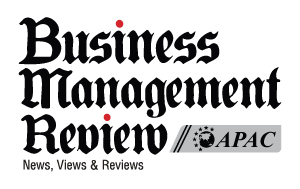Thank you for Subscribing to Business Management Review Weekly Brief
I agree We use cookies on this website to enhance your user experience. By clicking any link on this page you are giving your consent for us to set cookies. More info
Shaping Success Through Contemporary Leadership Skills
By
Business Management Review | Monday, February 16, 2026
FREMONT, CA: The rapid advancement of technology, changing workplace activities, and increasing societal expectations require leaders who can adapt, innovate, and inspire. Modern leadership demands a diverse skill set that encompasses emotional intelligence, adaptability, and the capacity to foster inclusive environments. Similarly, strong digital literacy and the capability to make data-driven decisions are crucial, allowing leaders to utilize technology strategically. In this context, collaboration and clear communication are essential, as leaders must effectively engage diverse teams and cultivate a culture of trust and accountability.
Essential Leadership Skills for the Future
Emotional Intelligence (EI) has gained recognition as a critical skill for future leaders. It focuses on the ability to recognise, understand, and manage one's own emotions as well as those of others. Research indicates that leaders with high EI are more effective in creating positive work environments, fostering collaboration, and inspiring loyalty. As automation increasingly takes over routine tasks, the human aspect of leadership, driven by EI, is expected to play a vital role in motivating teams and managing interpersonal environments.
Stay ahead of the industry with exclusive feature stories on the top companies, expert insights and the latest news delivered straight to your inbox. Subscribe today.
Agility in leadership has emerged as a crucial trait, reflecting the capacity to pivot quickly in response to changing market conditions, technological advancements, or unforeseen crises. COVID-19 highlighted the need for leaders to make quick, data-driven decisions and adapt to new realities while focusing on long-term goals. Future leaders will need to be comfortable with uncertainty and capable of guiding their teams through frequent and disruptive changes, as research suggests that agile organisations are more likely to outperform competitors during volatile times.
Strategic thinking and foresight have become defining characteristics of successful leaders in a changing world. Empirical strategic thinking encompasses setting long-term goals while possessing the foresight to identify emerging opportunities and threats. Leaders are encouraged to scan the external environment for potential disruptions and innovations that may impact their organisations, as studies emphasise the significance of strategic foresight in helping businesses stay competitive.
Empathy plays a vital role in effective leadership. The ability to understand and share the feelings of others fosters inclusiveness and a sense of belonging within diverse, global workforces. Leaders who practice empathy build trust, enhance employee well-being, and stimulate creativity by ensuring that all voices are heard. Recognising the importance of empathetic leadership is crucial for managing future employees' mental health and well-being.
In the age of big data, proficiency in data-driven decision-making is essential for leaders. This skill goes beyond merely relying on algorithms; it also encompasses the ability to interpret complex data sets and make informed judgments based on quantitative and qualitative information. Organisations prioritising data-driven decision-making tend to be more productive and profitable than their peers. Consequently, future leaders must integrate data into their strategic decision-making processes while balancing it with human intuition.
The future of leadership and management is defined by rapid technological advancements, evolving workforce demographics, and complex global challenges. To grow in this environment, leaders and managers must cultivate new competencies that prioritise adaptability, empathy, innovation, and inclusivity. Effective leadership will require a commitment to strategic thinking, continuous learning, and technology integration. Organisations can support this transformation by providing leaders with the necessary tools to excel in the future. The evolution of leadership is not merely about responding to change—it is about proactively shaping it for a better future.
More in News






